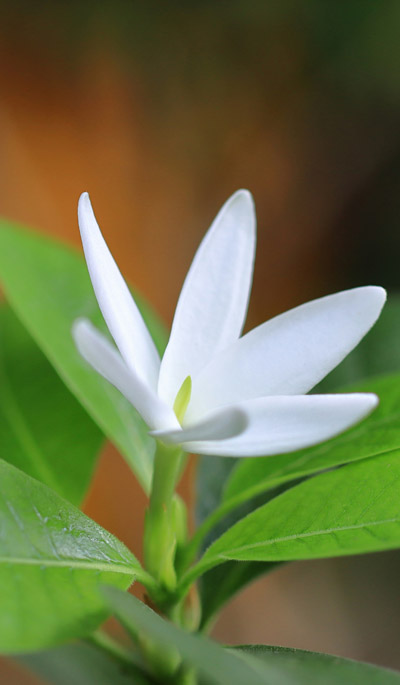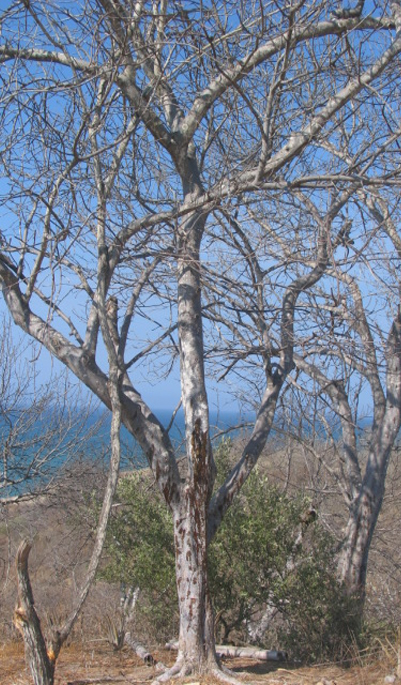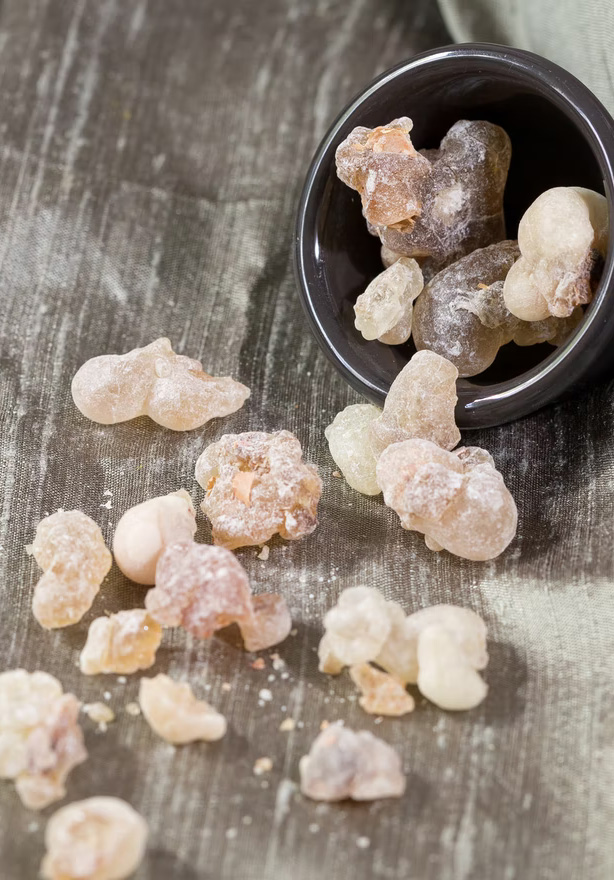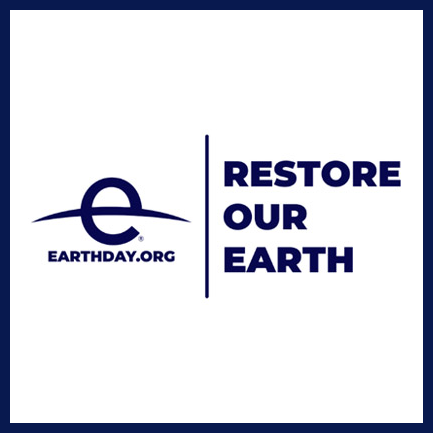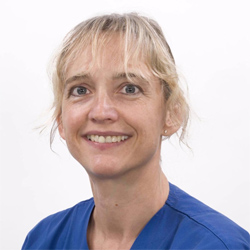May 6, 2025
Ancient Teaching and Wisdom From Our Plant Relatives
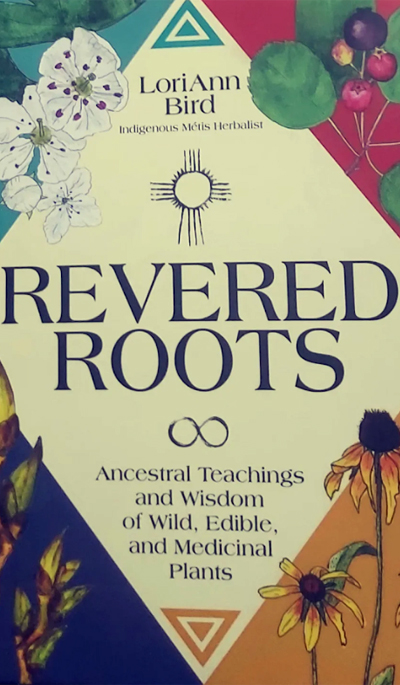
Presenter:
LoriAnn Bird
How to Attend?
Become an Airmid member today if you’d like to have access to this webinar (virtual or recorded), and many others we are excited to feature this year! Become an Airmid member today.
Not a member yet?
You can purchase access to individual webinars by clicking here.
Webinar Summary
Join Airmid Institute on May 6th at 10:30 AM PT for a special webinar titled Ancient Teaching and Wisdom From Our Plant Relatives with LoriAnn Bird, Indigenous Métis Herbalist and author of Revered Roots, as she shares ancestral teachings and wisdom from our plant relatives.
Explore remembering and reclaiming kinship with all that exists. Like the Medicine Wheel, Revered Roots is designed with four sections—offering principles to guide us: responsibility, relationship, reciprocity, and respect and reverence for all life.
In our time of gathering, LoriAnn will share stories about the Four Sacred Medicines: tobacco, sage, sweetgrass, and cedar. Then she will travel through the seasons honoring the gifts of spring with yarrow, summer with lavender, autumn with rosehip, and into the winter with juniper berry.
In these profound times we are navigating, it may be the perfect moment to reconnect with our living territories and step into our role as true guardians of this beautiful planet we call Mother Earth, she who gives us life.
LoriAnn Bird
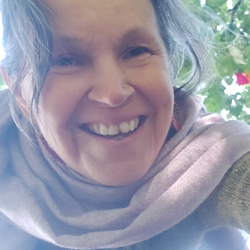 LoriAnn Bird is an Indigenous Metis herbalist, author and educator with a deep knowledge of wild, medicinal and edible plants that grow in everyday spaces. Through LoriAnn’s eyes, our immediate surroundings take on a new life and offer a wealth of untapped nutritional and ecological relationships. As a person of mixed heritage, LoriAnn is reminded of our interconnection with our ‘living territories’ and our more-than-human-kin, the plants, who are considered our relatives.
LoriAnn Bird is an Indigenous Metis herbalist, author and educator with a deep knowledge of wild, medicinal and edible plants that grow in everyday spaces. Through LoriAnn’s eyes, our immediate surroundings take on a new life and offer a wealth of untapped nutritional and ecological relationships. As a person of mixed heritage, LoriAnn is reminded of our interconnection with our ‘living territories’ and our more-than-human-kin, the plants, who are considered our relatives.
LoriAnn’s vision is to continually co-create insightful dialogues, to remediate and reconcile with our Indigenous plants as we reintroduce them into our urban landscapes, regenerating and rewilding to make space for habitat. By sharing and growing these practices, communities can access our true local foods and medicines, which support collective resilience and deep ecological healing for all species.
As a refugee of the Red River Metis Nation, born and raised on the Coast Salish lands, LoriAnn is deeply grateful to live on the unceded & traditional territories of the Coast Salish Peoples – xʷməθkwəy̓əm (Musqueam), Skwxwú7mesh (Squamish), and Səl̓ílwətaʔ/Selilwitulh (Tsleil-Waututh) peoples.
April 22, 2025
Airmid’s Earth Day Event

Event Summary
Join us this Earth Day, April 22, 2025, from 10:00 AM to 2:00 PM PT, for a special collaboration between Airmid Institute and the North Etiwanda Preserve (NEP) as we take part in EarthDay.Org’s Great Global Cleanup!
The NEP is a protected habitat spanning over 1,200 acres, home to the rare Riversidean Alluvial Fan Sage Scrub plant community and fragile plant species like white sage (Salvia apiana) and the Coastal California gnatcatcher (Polioptila californica).
Come ready to connect with Nature, learn, and make a meaningful impact!
For details about the event, please contact info@airmidinstitute.org.
February 3, 2025
Cultural Roots, Sustainable Future: The Story of Australian Sandalwood and Paperbark Trees
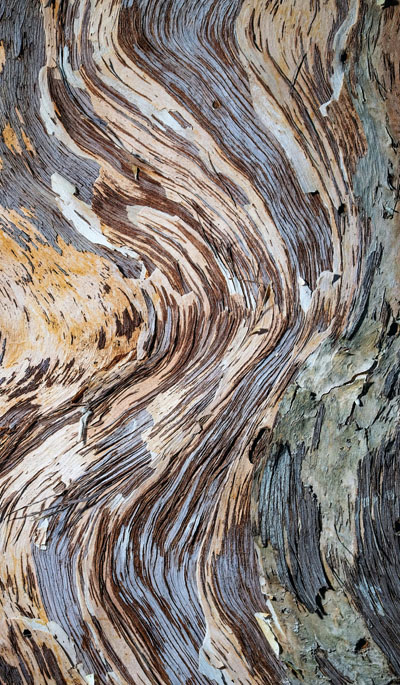
Presenter:
Deby Atterby
How to Attend?
Become an Airmid member today if you’d like to have access to this webinar (virtual or recorded), and many others we are excited to feature this year! Become an Airmid member today.
Not a member yet?
You can purchase access to individual webinars by clicking here.
Webinar Summary
Join Deby Atterby on a journey “down under” as she delves into the fascinating world of two popular Australian essential oils. Deby will explore their history, highlighting how they were traditionally used by First Nations people and later adopted by Australia’s white settlers. She will also discuss the current sustainability status of these oils and their present-day significance.
The session will focus on Australian sandalwood (Santalum spicatum) and Australian paperbark (Melaleuca quinquenervia) trees, offering insights into their cultural, historical, and ecological importance.
Deby Atterby
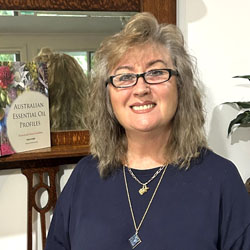 Deby Atterby is an active Aromatherapy educator and clinical practitioner with over 40 year’s experience and continues to be active in aromatic medicine and clinical aromatherapy, as well as Western Herbal Medicine, she has trained internationally since 2001.
Deby Atterby is an active Aromatherapy educator and clinical practitioner with over 40 year’s experience and continues to be active in aromatic medicine and clinical aromatherapy, as well as Western Herbal Medicine, she has trained internationally since 2001.
In 2008, she undertook the task of editor and publisher of the industry magazine, “Aromatherapy Today International Journal”, which assists Aromatherapists with their continuing education in the aromatherapy realm, and Deby provides an in-depth profile of an Essential Oil in each volume.
November 26, 2024
Natural Perfume and Sustainability: Is Natural the Solution?
Webinar Summary
This webinar will focus on natural perfumery which is booming. People want to transform their habits and commit to more sustainability. This concerns all aspects of life: transportation, home, food, beauty through greener cosmetics and also more natural perfumes. But is perfuming oneself with natural materials, particularly from plants and their extractions, really a greener gesture?
With this talk, we will discuss both conventional and natural perfumery, and highlight the pros and cons. Is it really so easy to differentiate one from the other? What is hidden behind each of the names? Through this journey, Amandine and guest panelists will attempt to draw a more reasonable future for sustainable perfumery and its challenges.
Amandine Devillard
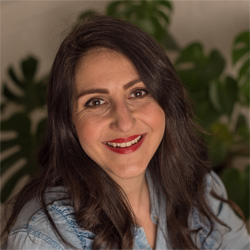 Amandine Devillard has always had a strong connection to Nature thanks to her grandfather, a great Nature lover, with whom she often went on walks. She remembers that when she was 8 years old, she wanted to learn the Encyclopedia of Nature by heart! She has a Master’s degree in Italian, and has worked for several years educating teenagers in France.
Amandine Devillard has always had a strong connection to Nature thanks to her grandfather, a great Nature lover, with whom she often went on walks. She remembers that when she was 8 years old, she wanted to learn the Encyclopedia of Nature by heart! She has a Master’s degree in Italian, and has worked for several years educating teenagers in France.
Frauke Galia
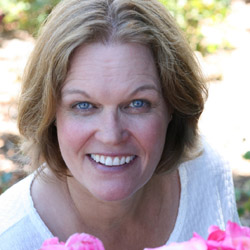 Frauke Galia is a smell coach, certified aromatherapist, author and producer/host of the podcast An Aromatic Life. She is also a professional ambassador for the U.K. non-profit organization Fifth Sense, focused on supporting those with smell and taste disorders. Previously, Frauke spent over 20 years of her professional career in and around the fragrance industry…
Frauke Galia is a smell coach, certified aromatherapist, author and producer/host of the podcast An Aromatic Life. She is also a professional ambassador for the U.K. non-profit organization Fifth Sense, focused on supporting those with smell and taste disorders. Previously, Frauke spent over 20 years of her professional career in and around the fragrance industry…
Mauricio Garcia
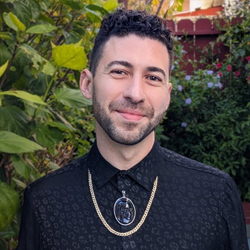 Mauricio Garcia, a designer, perfumer, and certified aromatherapist based in the San Francisco Bay Area, draws inspiration from the botanical world he first encountered in his Abuelita’s garden. Through his brand, Herbcraft, he creates perfumes that connect us to natural and ancestral realms, drawing from the Pacific West Coast’s unique ecology.
Mauricio Garcia, a designer, perfumer, and certified aromatherapist based in the San Francisco Bay Area, draws inspiration from the botanical world he first encountered in his Abuelita’s garden. Through his brand, Herbcraft, he creates perfumes that connect us to natural and ancestral realms, drawing from the Pacific West Coast’s unique ecology.
Sharon Falsetto Chapman
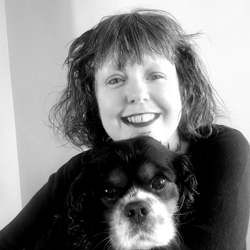 Sharon Falsetto Chapman, BA (Hons), is a UK-certified aromatherapist who has lived and worked in the United States since 2006. She has two decades of experience within the aromatherapy industry and has worked within the healthcare industry since the 1990’s. Her natural love and talent for writing merged with her passion for plants and scent, and….
Sharon Falsetto Chapman, BA (Hons), is a UK-certified aromatherapist who has lived and worked in the United States since 2006. She has two decades of experience within the aromatherapy industry and has worked within the healthcare industry since the 1990’s. Her natural love and talent for writing merged with her passion for plants and scent, and….
Justine Crane
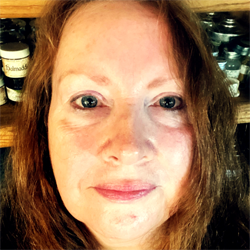 Justine Crane, co-founder of the Natural Perfume Academy, has been a dedicated botanical perfumer for over 20 years. Her journey began in the Sierra Nevada Mountains, where she founded Sierra Soapourri in 1997. Since then, she has become a renowned perfumery educator and author, publishing two books on natural fragrance.
Justine Crane, co-founder of the Natural Perfume Academy, has been a dedicated botanical perfumer for over 20 years. Her journey began in the Sierra Nevada Mountains, where she founded Sierra Soapourri in 1997. Since then, she has become a renowned perfumery educator and author, publishing two books on natural fragrance.
September 18, 2024
Palo Santo, the sacred wood of Ecuador: challenges and key role of indigenous traditions and conservation efforts.
Webinar Summary
Palo santo (Bursera graveolens) is native to the dry tropical forests of Latin America, particularly in Ecuador and Peru, where it holds significant cultural, spiritual, and medicinal importance among Indigenous communities. The tree is known for its aromatic wood, used in traditional rituals for purification and healing.
Its biology is characterized by a deciduous nature, deep root systems, and the production of aromatic compounds that enhance the quality of its wood and oil. However, although palo santo is assessed as Least Concern on the IUCN Red List, it faces threats from habitat loss and overharvesting, prompting conservation efforts that include sustainable harvesting practices, reforestation, and international regulations to ensure its preservation and ethical trade.
These efforts are informed by the work of Ecuadorians Rafael Paducci and Ivonne Mosler, who have pioneered sustainable practices and collaborated closely with Indigenous communities to protect and utilize palo santo responsibly.
Rafael Parducci V.
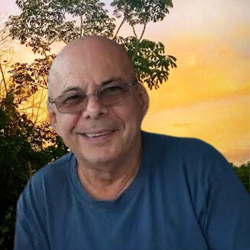 Rafael Parducci V. has 23 years of experience in the distillation of essential oils in the Republic of Ecuador, a country where he has conducted research and had multiple experiences with countless plants, obtaining truly interesting results both scientifically and economically. Parducci has discovered that the true treasure of “El Dorado” lies in the emerald of the plants and the gold in the color and quality of its exotic and incredible essential oils, whether of native or non-native origin.
Rafael Parducci V. has 23 years of experience in the distillation of essential oils in the Republic of Ecuador, a country where he has conducted research and had multiple experiences with countless plants, obtaining truly interesting results both scientifically and economically. Parducci has discovered that the true treasure of “El Dorado” lies in the emerald of the plants and the gold in the color and quality of its exotic and incredible essential oils, whether of native or non-native origin.
Ivonne Mosler
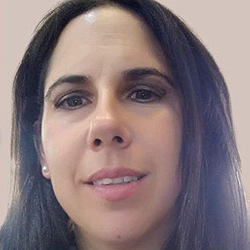 Ivonne Mosler discovered 10 years ago the wonders of Amazonian biodiversity as the magic of the tropical dry forests of the Ecuadorian coast. Since then, she has dedicated much of her careerpr omoting sustainable practices and the conservation of natural resources. In her current role, Ivonne Mosler is a key figure in the project “Resilience to Climate Change of Communities through the Forest Management of Palo Santo in the Framework of Popular and Solidarity Economy in the Province of Santa Elena”.
Ivonne Mosler discovered 10 years ago the wonders of Amazonian biodiversity as the magic of the tropical dry forests of the Ecuadorian coast. Since then, she has dedicated much of her careerpr omoting sustainable practices and the conservation of natural resources. In her current role, Ivonne Mosler is a key figure in the project “Resilience to Climate Change of Communities through the Forest Management of Palo Santo in the Framework of Popular and Solidarity Economy in the Province of Santa Elena”.
Dominique Gaillard
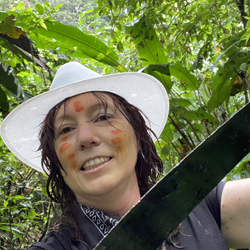 Dominique Gaillard, born in rural France, is a passionate aromatherapist and natural skincare specialist. Raised by a traditional gardener father and influenced by the renowned herbalist Maurice Messegue, Dominique developed a deep connection with nature and natural remedies. Her journey into aromatherapy began in her early thirties, seeking natural solutions for her children’s health. She explored essential oils and cosmetics while teaching English at a secondary school.
Dominique Gaillard, born in rural France, is a passionate aromatherapist and natural skincare specialist. Raised by a traditional gardener father and influenced by the renowned herbalist Maurice Messegue, Dominique developed a deep connection with nature and natural remedies. Her journey into aromatherapy began in her early thirties, seeking natural solutions for her children’s health. She explored essential oils and cosmetics while teaching English at a secondary school.
May 23, 2024
A Class on Working and Living Sustainably With White Sage

Presenter:
Antonio Sanchez
How to Attend?
Become an Airmid member today if you’d like to have access to this webinar (virtual or recorded), and many others we are excited to feature this year! Become an Airmid member today.
Not a member yet?
You can purchase access to individual webinars by clicking here.
Webinar Summary
Antonio will teach you how to grow White Sage (Salvia apiana) from seed, including special treatments for increasing germination rates. He will also give you tips for growing White Sage from cuttings, and teach you how to keep White Sage happy in a container (pot) or in your garden. You will explore how White Sage is overharvested in California, and how folks inside and outside California can help reduce overharvesting by growing the plant themselves.
Biography
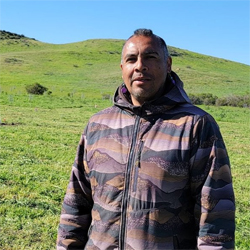 Antonio Sanchez is the nursery manager and restoration volunteer outreach coordinator for SAMOFund in Santa Monica Mountains National Recreation Area, and has been working around native plants for nearly 2 decades. He is co-founder and lead singer of the native plant band Sage Against the Machine, and was lead organizer for the California Native Food Symposium, the Southern California Monarch and Milkweed Conference, the first Ventura County Native Plant Symposium, and the California Native Sage Festival.
Antonio Sanchez is the nursery manager and restoration volunteer outreach coordinator for SAMOFund in Santa Monica Mountains National Recreation Area, and has been working around native plants for nearly 2 decades. He is co-founder and lead singer of the native plant band Sage Against the Machine, and was lead organizer for the California Native Food Symposium, the Southern California Monarch and Milkweed Conference, the first Ventura County Native Plant Symposium, and the California Native Sage Festival.
Antonio has worked at various native plant institutions around the state, and has managed the nurseries at Rancho Santa Ana Botanic Garden, worked as a landscaper at the Santa Barbara Botanic Garden, worked as a nursery technician at the Theodore Payne Foundation for Native Plants, and co-founded and ran Nopalito Native Plant Nursery in Ventura, CA, with a good friend and a cousin, for nearly 4 years.
He believes in making native plants fun and approachable to all, learning about and teaching old and new ways with native plants, and that Hummingbird Sage is probably the prettiest California native sage, but Salvia pachyphylla is a close second.
February 21, 2024
Regenerative Agriculture With a Focus on Medicinal and Aromatic Plants
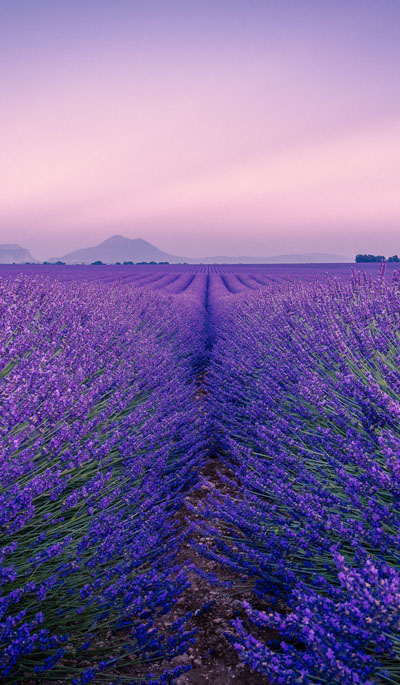
Presenter:
Iris Mota BSc, MSc
How to Attend?
Become an Airmid member today if you’d like to have access to this webinar (virtual or recorded), and many others we are excited to feature this year! Become an Airmid member today.
Not a member yet?
You can purchase access to individual webinars by clicking here.
Webinar Summary
Regenerative agriculture (RegenAg) encompasses principles that prioritize soil health, biodiversity, and ecosystem restoration in farming practices. Additionally, in RegenAg these practices must take into account economic viability and community benefits. Applying these principles to cultivating medicinal and aromatic plants (MAPs) has generated significant interest, driven not only by rising demand but also by the potential for integrated production systems. Regenerative methods nurture healthier soil microbiomes, enhancing nutrient availability and plant resilience. This approach not only promotes a more sustainable agriculture but also has the potential to enhance the production of secondary metabolites and oils in MAPs due to plant interactions with a thriving soil microbiome. By emphasizing ecological balance and soil vitality, regenerative agriculture presents a promising avenue for cultivating these valuable plants while supporting environmental well-being.
Biography
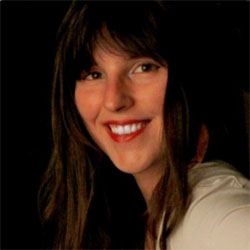 Iris Mota, a Portuguese Plant Biologist with a Master’s in Pharmacy and Chemistry of Plant Natural Products, is a professional with diverse expertise. Having extensively worked in essential oil distilleries across Portugal, Angola, Italy, and Peru, Iris evaluated value chains and critical points to achieve an optimized production of oils. In parallel, she has also worked as an agronomist, aiding farms transitioning to regenerative agriculture. Her hands-on experience spans nearly 100 farms between 2021 and 2023, learning and teaching farmers how to evaluate their soil and what are other methods of observing a farm. Her passion for MAPs and regenerative agriculture led her to publish a scientific article exploring mycorrhizae soil fungi’s influence on essential oil production, its effect on the chemical profile, and biomass production. Iris has a deep commitment to studying and promoting regenerative agriculture while recognizing its potential in optimizing the cultivation of medicinal plants while prioritizing ecological balance and sustainability.
Iris Mota, a Portuguese Plant Biologist with a Master’s in Pharmacy and Chemistry of Plant Natural Products, is a professional with diverse expertise. Having extensively worked in essential oil distilleries across Portugal, Angola, Italy, and Peru, Iris evaluated value chains and critical points to achieve an optimized production of oils. In parallel, she has also worked as an agronomist, aiding farms transitioning to regenerative agriculture. Her hands-on experience spans nearly 100 farms between 2021 and 2023, learning and teaching farmers how to evaluate their soil and what are other methods of observing a farm. Her passion for MAPs and regenerative agriculture led her to publish a scientific article exploring mycorrhizae soil fungi’s influence on essential oil production, its effect on the chemical profile, and biomass production. Iris has a deep commitment to studying and promoting regenerative agriculture while recognizing its potential in optimizing the cultivation of medicinal plants while prioritizing ecological balance and sustainability.
November 21, 2023
Seaweed: Healing and Nourishment from the Ocean
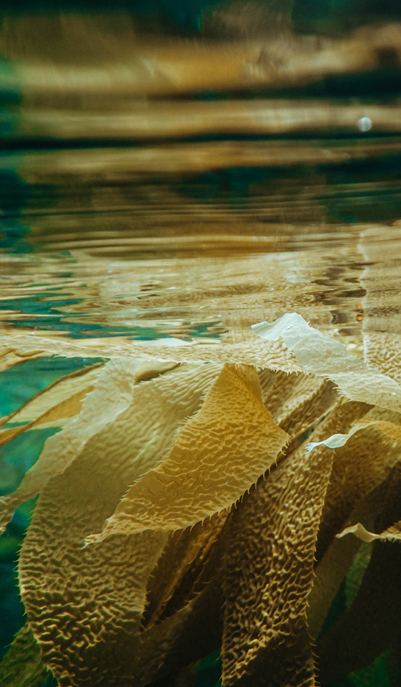
Presenter:
Amanda Swinimer, BSc Marine Biology
How to Attend?
Become an Airmid member today if you’d like to have access to this webinar (virtual or recorded), and many others we are excited to feature this year! Become an Airmid member today.
Not a member yet?
You can purchase access to individual webinars by clicking here.
Seaweed, also known as macroalgae, is a diverse group of medicinal and aromatic marine plants found in oceans and other bodies of water around the globe. Seaweed has a long history of multifaceted applications, including its use in perfumery, and exhibits significant size, color, and shape variations.
In the world of fragrances, compounds derived from seaweeds such as kelp, nori, bladderwrack, and sargassum are used to create aquatic and fresh scents. These extracts enhance the overall olfactory experience by evoking the essence of the ocean.
However, despite its numerous benefits and potential applications, seaweed faces several obstacles. These obstacles include environmental stressors, such as pollution, ocean warming, and ocean acidification, as well as issues related to overexploitation, such as unsustainable extraction methods.
Webinar Summary
Seaweeds belong to a group of organisms called algae, which are critical to the health of our planet. Providing the foundational nourishment for the entire ocean ecosystem, they also produce half or more of our atmosphere’s oxygen and absorb an estimated one-third of carbon dioxide. Having evolved over 1.5 billion years to thrive in extreme environments, seaweeds contain a medley of novel, biologically active compounds that both current studies and traditional use suggest providing tremendous health benefits. Learn how seaweed helps to heal both the planet and people, and the current challenges facing the health of seaweed ecosystems.
Biography
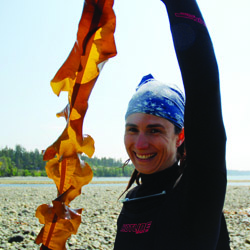 Amanda Swinimer is a seaweed harvester, author, speaker, and educator who lives and works on the southwest coast of Vancouver Island, Canada. She began her own business, Dakini Tidal Wilds, in 2003, hand-harvesting wild edible seaweed from the beaches and kelp forests surrounding her home. Swinimer’s unique expertise makes her a sought-after speaker at international conferences, speaking about the ecological importance of seaweeds and the extraordinary health benefits. She has been conducting seaweed workshops and tours as well as teaching young people in the British Columbia school system for years, passing on her rare knowledge and sharing her intensely joyful connection to the ocean with diverse audiences. She holds a BSc in marine biology and is the author of The Science and Spirit of Seaweed: Discovering Food, Medicine and Purpose in the Kelp Forests of the Pacific Northwest and The Science and Superpowers of Seaweed: A Guide for Kids.
Amanda Swinimer is a seaweed harvester, author, speaker, and educator who lives and works on the southwest coast of Vancouver Island, Canada. She began her own business, Dakini Tidal Wilds, in 2003, hand-harvesting wild edible seaweed from the beaches and kelp forests surrounding her home. Swinimer’s unique expertise makes her a sought-after speaker at international conferences, speaking about the ecological importance of seaweeds and the extraordinary health benefits. She has been conducting seaweed workshops and tours as well as teaching young people in the British Columbia school system for years, passing on her rare knowledge and sharing her intensely joyful connection to the ocean with diverse audiences. She holds a BSc in marine biology and is the author of The Science and Spirit of Seaweed: Discovering Food, Medicine and Purpose in the Kelp Forests of the Pacific Northwest and The Science and Superpowers of Seaweed: A Guide for Kids.
Link
August 15, 2023
Fair and Sustainable Wild Collection of Nardostachys jatamansi
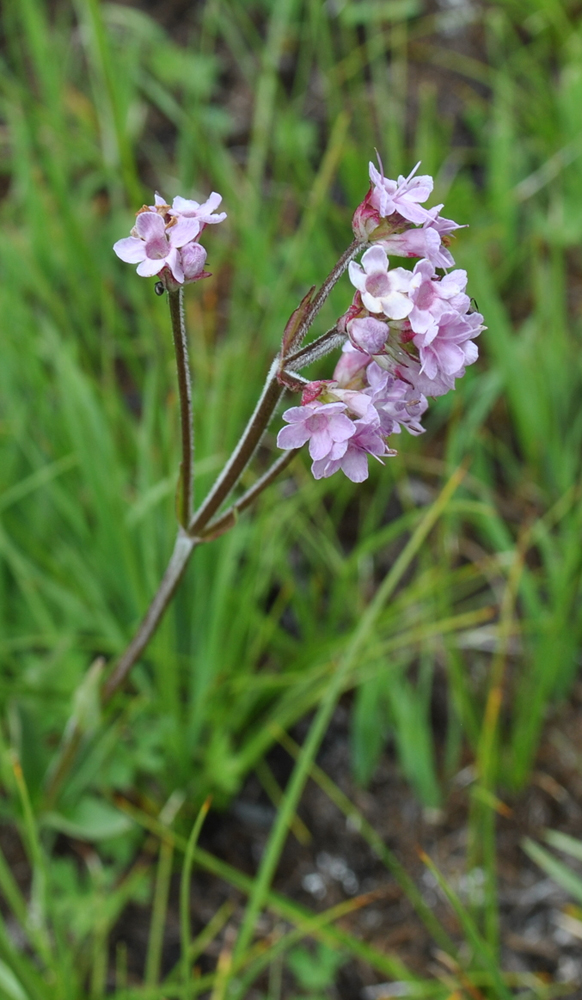
Presenter:
Deborah Vorhies
How to Attend?
Become an Airmid member today if you’d like to have access to this webinar (virtual or recorded), and many others we are excited to feature this year! Become an Airmid member today.
Not a member yet?
You can purchase access to individual webinars by clicking here.
There are 300,000 to 400,000 plant species around the world, and out of these, approximately 30,000 have well-documented medicinal or aromatic uses. It’s noteworthy that 60% to 90% of the medicinal and aromatic plants in trade are collected from the wild, as reported by Wildcheck in 2022.
By adhering to the FairWild Standard, wild harvesting has the potential to foster positive relationships between nature and people. This approach helps preserve unique cultures and promotes the sustainable use of distinctive landscapes, while also ensuring dignity and fair income for the communities depending on these resources. In this workshop, we will explore FairWild’s initiatives with Jatamansi in Nepal, and how we successfully established 2000 hectares of Himalayan highland habitat for sustainable harvesting through the region’s first FairWild certified operation. Additionally, we will discuss our collaborative efforts with CITES and the local government in accomplishing these results.
Biography
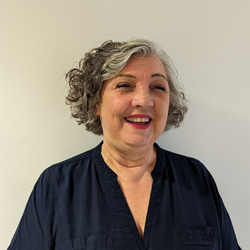 Deborah Vorhies serves as the CEO of FairWild Foundation, a voluntary standard and certification provider for wild harvested plant ingredients. A global sustainability policy and investment strategist, Deborah has extensive experience in international biodiversity, trade and investment policy arena, through her positions within the United Nations Environment Programme and the World Bank group, and senior management within the NGO sector, specifically in relation to the environment, investment and business sustainability. As COO of the ICTSD – a global research thinktank based in Geneva – she contributed to the development of innovative and effective policies to promote sustainability within the international trade and investment policy arenas, both globally and regionally, and inclusive economic transformation. Although her background is in law, finance and policy, she recently completed a Masters in Philosophy, and her current research is directed towards Ethics and Policy in relation to Sustainable Use.
Deborah Vorhies serves as the CEO of FairWild Foundation, a voluntary standard and certification provider for wild harvested plant ingredients. A global sustainability policy and investment strategist, Deborah has extensive experience in international biodiversity, trade and investment policy arena, through her positions within the United Nations Environment Programme and the World Bank group, and senior management within the NGO sector, specifically in relation to the environment, investment and business sustainability. As COO of the ICTSD – a global research thinktank based in Geneva – she contributed to the development of innovative and effective policies to promote sustainability within the international trade and investment policy arenas, both globally and regionally, and inclusive economic transformation. Although her background is in law, finance and policy, she recently completed a Masters in Philosophy, and her current research is directed towards Ethics and Policy in relation to Sustainable Use.
Link
May 18, 2023
Promoting Indigenous Medicine in Southeast Alaska Through Responsible Ecosystem Management and Protection of S’áxt’ (Oplopanax horridus)
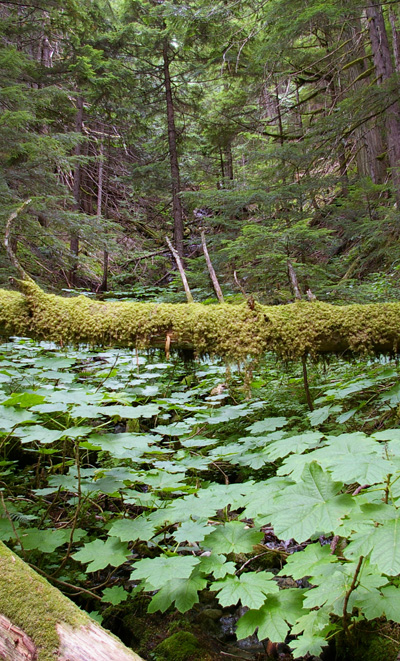
Essential oil-bearing plant devil’s club by Tim Gage, Vancouver BC
Presenters:
Mark (Atyátx’i Latíni) Dundore
How to Attend?
Become an Airmid member today if you’d like to have access to this webinar (virtual or recorded), and many others we are excited to feature this year! Become an Airmid member today.
Not a member yet?
You can purchase access to individual webinars by clicking here.
Biography
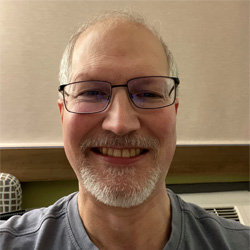 Mark (Atyátx’i Latíni) Dundore is a Tlingit Eagle/Thunderbird of the House Lowered from the Sun of Klukwan, Alaska and lives in Juneau, Alaska. He is a citizen scientist and pioneer of the essential oil of s’áxt’ (devil’s club) from branch bark. Inventions include a peeling machine and a processing system. He has published articles on potential therapeutic benefits of the essential oil from branch bark and also about sustainable harvesting of the plant. Currently pursuing diplomas in essential oil science and Aromadermatology. Dundore performs ongoing field studies in the Tongass rainforest to better understand the role of s’áxt’ in the ecosystem and to ensure and improve essential oil product quality.
Mark (Atyátx’i Latíni) Dundore is a Tlingit Eagle/Thunderbird of the House Lowered from the Sun of Klukwan, Alaska and lives in Juneau, Alaska. He is a citizen scientist and pioneer of the essential oil of s’áxt’ (devil’s club) from branch bark. Inventions include a peeling machine and a processing system. He has published articles on potential therapeutic benefits of the essential oil from branch bark and also about sustainable harvesting of the plant. Currently pursuing diplomas in essential oil science and Aromadermatology. Dundore performs ongoing field studies in the Tongass rainforest to better understand the role of s’áxt’ in the ecosystem and to ensure and improve essential oil product quality.
Link
February 17, 2023
What Is the Role of the Hydrolat in Sustainability?
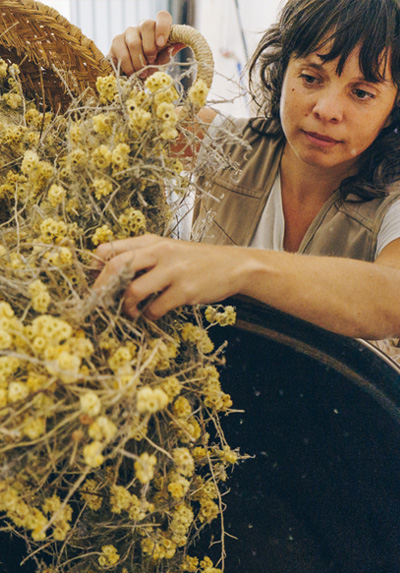
Presenters:
Kurt Arruda and Silvia Jiménez
How to Attend?
Become an Airmid member today if you’d like to have access to this webinar (live or recorded), and many others we are excited to feature this year! Become an Airmid member today
Not a member yet?
You can purchase access to individual webinars by clicking here.
We as a society know, and fortunately this awareness is growing, that essential oil production could be a real threat for biodiversity if not done in a correct and conscious way. We know as well that many factors come into play when we talk about sustainability in this ambit, such as for example, what kind of farming practices and wild-harvesting methods are applied, how the still works, and what uses we give to the vegetable distillates.
But there is another major factor in this process that has always been just in front of our noses and that seems to have gone unnoticed. Something that is not exactly negligible in any way: the hydrolat (also known as ‘hydrosol’) – a real botanical treasure with a huge potential and effectiveness among several fields.
Actually, it is the main character of this tale, given that it’s directly connected to the sustainability of a distillery. And moreover this goes much further, we aren’t talking only from an ecological vision, but also from a social and economical perspective.
In short, hydrolats are key factors of next-generation distilleries for a more conscious and organic future.
Biography
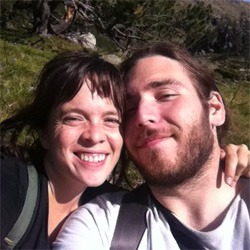 Sílvia comes from a Catalan and Aragonese family. She has felt a strong connection with the natural world since a very young age, especially with forests and medicinal wild plants, as she inherited this passion and knowledge from her grandparents and great-grandmother.
Sílvia comes from a Catalan and Aragonese family. She has felt a strong connection with the natural world since a very young age, especially with forests and medicinal wild plants, as she inherited this passion and knowledge from her grandparents and great-grandmother.
She graduated in Biology from the University of Barcelona and has worked both in plant research projects (University of the Azores in Portugal and at the Centre for Agri-Food Research and Technology of Aragon, Spain) and in LIFE conservation projects led by the Portuguese Society for the Study of Birds (SPEA, a Portuguese NGO partner of Birdlife International).
She also has extensive experience on Environmental Education and loves working with children towards caring for the environment.
Kurt, born in Canada, is native of the island of São Miguel, Azores, Portugal, although he has been living in Spain for several years. He shares the same passion for Nature, both terrestrial and aquatic worlds, as he used to spend his days surrounded by green mountains and the deep waters of the Atlantic Ocean from a very young age.
He has a real fascination for ecological systems and believes tenaciously that they are the true inspiration for sustainable living and production. After realizing that as a society we are “out of sync” with the living systems to which we belong, he began his personal quest to live in a more harmonious way, eventually finding what he was looking for, Permaculture and Regenerative Agriculture. As well as considering himself an eternal autodidact, he obtained the Permaculture Design Certificate (PDC), Queensland (Australia) and a grade of specialization in Ecological Agriculture in Aragon, Spain.
Links
December 8, 2022
Co-creating vibrant and potent oils from plants growing around us
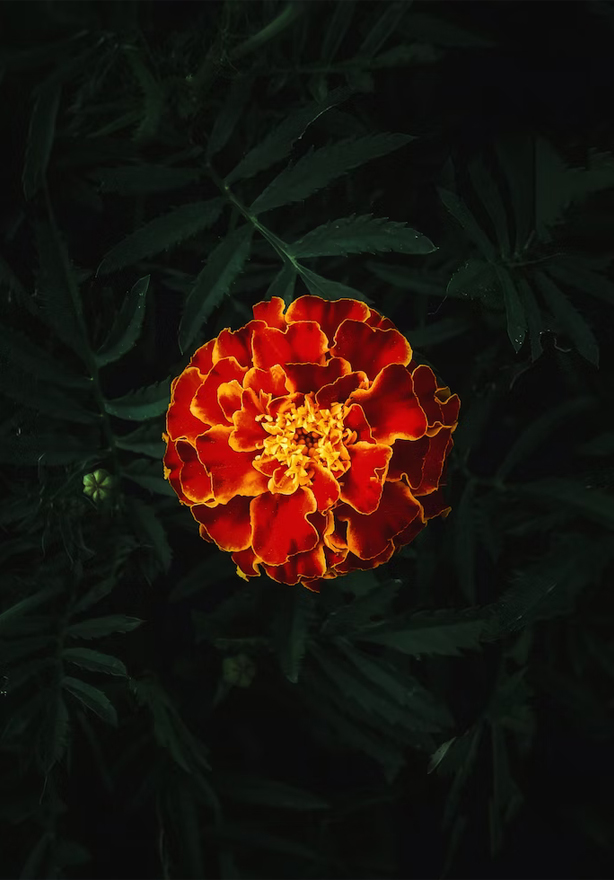
Presenter:
Felicity Warner
How to Attend?
Become an Airmid member today if you’d like to have access to this webinar (live or recorded), and many others we are excited to feature this year! Become an Airmid member today
Not a member yet?
You can purchase access to individual webinars by clicking here.
Sustainability, commercial harvesting of essential oils and its effects on Indigenous communities and reducing our carbon footprints are hot topics in aromatherapy.
But imagine nurturing one or two plants, perhaps Holy Basil, Marigold, even Rose, developing a tender and honouring relationship with them and harvesting enough plant material from them to cover your needs. No waste, no air miles and an oil with vitality and organic provenance.
Felicity Warner, the founder of Soul Midwives (holistic and spiritual therapists to the dying) makes simple macerated oils from native plants in the UK for the treatment of her patients.
In doing so, she has been able to substitute several oils sourced from threatened and near threatened plants including frankincense (Boswellia spp.), spikenard (Nardostachys jatamansi), and elemi (Canarium luzonicum) with wild crafted native alternatives which are powerful in their healing vibration, frequency, and therapeutic properties.
If we can nurture and harvest and co-create oils with 20 or so plants from our own windowsills and gardens, we can create a vibrant oils collection with zero carbon footprint” She explains. This talk explains how we all might do this and examines the positive and therapeutic outcomes.
Biography
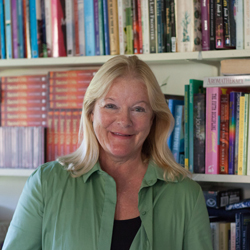 Felicity Warner is founder of the global Soul Midwives Movement, lectures both nationally and internationally and runs The Soul Midwives’ School, based in Dorset, UK, its unique training programme teaches holistic and spiritual care for the end of life.
Felicity Warner is founder of the global Soul Midwives Movement, lectures both nationally and internationally and runs The Soul Midwives’ School, based in Dorset, UK, its unique training programme teaches holistic and spiritual care for the end of life.
She has won many awards for her work with the dying and her pioneering work has brought a new dimension to holistic and spiritual palliative care, both in the UK and abroad (there are now soul midwives working in the USA, Canada, Australia, New Zealand, and South Africa).
Felicity Warner is also a Myrrhophore (Myrrh-bearing woman) author of the acclaimed book Sacred Oils and lineage holder of this ancient tradition which is linked to Mary Magdalene and Egyptian celestial medicine. She uses Sacred Oils for their energetic properties to re-balance, heal and restore us to a state of perfect balance and harmony.
Links
August 2, 2022
Medicinal and Aromatic Plants (MAPs) Supply Chain Series – Part 1
About the Series
Take part in the Airmid Institute Medicinal and Aromatic Plants (MAPs) Supply Chain Series!
The medicinal and aromatic plants we love and commonly use are harvested from all corners of the globe, and many of them — such as frankincense (Boswellia spp.), myrrh (Commiphora spp.), copaiba (Copaifera spp.), spikenard (Nardostachys jatamansi), elemi (Canarium luzonicum), palo santo (Bursera graveolens), shea (Vitellaria paradoxa), and white sage (Salvia apiana) are collected primarily or entirely from the wild. These plants are often part of complex socio-ecological systems wherein the survival of both plants and people are mutually dependent.
However, wild-harvested plants are vulnerable to common challenges opaque supply chains with limited traceability result in – poor harvesting practices, illegal harvesting, exportation and importation, poor adaptation strategies in response to impacts of climate change, limited benefits to harvesters and their communities, a lack of readily available ubiquitous sourcing guidelines for consumers, and greenwashing.
Addressing these challenges is vital to creating successful conservation-through-use models. Meeting these challenges further supports the preservation of healthy ecosystems while indigenous and non-indigenous communities, harvesters, companies, and consumers all enjoy fair benefits and high-quality products from trade. Taking action is key to driving industry change in a more positive, accountable, and sustainable direction.
In this series, we will invite industry leaders– the scientists, producers, and sourcing personnel that work with wild plants every day, as well as consumers and media representatives — to discuss the challenges and opportunities for these supply chains and the innovative approaches being used to elevate the standards across the board.
We are kicking off this free series with Stephen Johnson and Andy Thornton’s webinar Creating real change in challenging supply chains: Exploring how to create sustainable and transparent progress in the frankincense supply chain on August 2nd 11 am – 12 pm PT. Here is the link to join this open free webinar.
Frankincense is one of the most popular essential oils, but there is an increasing awareness of the challenges associated with ethically sourcing this ancient aromatic. Now more than ever, it is critical to understand how these supply chains operate and how we can use frankincense responsibly. Here we explore the practical realities of frankincense sourcing, from ensuring sustainable harvesting at tree level to engaging fairly with communities and tracing resin as it moves through the supply chain, and we engage with practitioners to discuss new and ongoing sustainability and transparency initiatives and how we can all together promote positive sourcing impacts across the industry.
Stephen Johnson
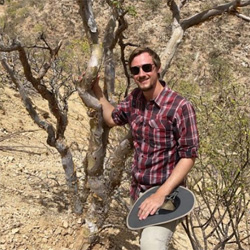 Stephen Johnson has been working on the sustainability of wild-harvested products since 2016. He has conducted field research and analyses in West Africa (Burkina Faso, Ghana), East Africa (Ethiopia, Somaliland, Puntland), and the Arabian Peninsula (Oman), and has published almost a dozen peer-reviewed papers, book chapters, and reports on frankincense. As a technical advisor and direct supplier of frankincense, myrrh, and other wild-harvested products, Stephen focuses on creating systemic change in wild plant supply chains by implementing regenerative practices and supporting radical transparency and engagement with harvesting communities. He is always excited to discuss innovation and improvements in wild plant conservation and harvesting, or to discuss frankincense and myrrh ecology, chemistry, and conservation at length.
Stephen Johnson has been working on the sustainability of wild-harvested products since 2016. He has conducted field research and analyses in West Africa (Burkina Faso, Ghana), East Africa (Ethiopia, Somaliland, Puntland), and the Arabian Peninsula (Oman), and has published almost a dozen peer-reviewed papers, book chapters, and reports on frankincense. As a technical advisor and direct supplier of frankincense, myrrh, and other wild-harvested products, Stephen focuses on creating systemic change in wild plant supply chains by implementing regenerative practices and supporting radical transparency and engagement with harvesting communities. He is always excited to discuss innovation and improvements in wild plant conservation and harvesting, or to discuss frankincense and myrrh ecology, chemistry, and conservation at length.
Andy Thornton
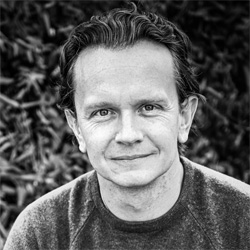 Andy Thornton is the Founder and Managing Partner of Silvan Ingredient Ecosystem. Silvan connects the world’s best brands with the world’s best ingredients and helps sustainable and regenerative ingredient growers scale their impact and find new markets. He has spent 15 years working in international development and agricultural supply chains, working globally but with a particular passion for West Africa. Andy holds an MBA from the University of Oxford where he studied as a Skoll Scholar. www.silvan.eco
Andy Thornton is the Founder and Managing Partner of Silvan Ingredient Ecosystem. Silvan connects the world’s best brands with the world’s best ingredients and helps sustainable and regenerative ingredient growers scale their impact and find new markets. He has spent 15 years working in international development and agricultural supply chains, working globally but with a particular passion for West Africa. Andy holds an MBA from the University of Oxford where he studied as a Skoll Scholar. www.silvan.eco
July 6, 2022
Natural Perfume and Wellbeing
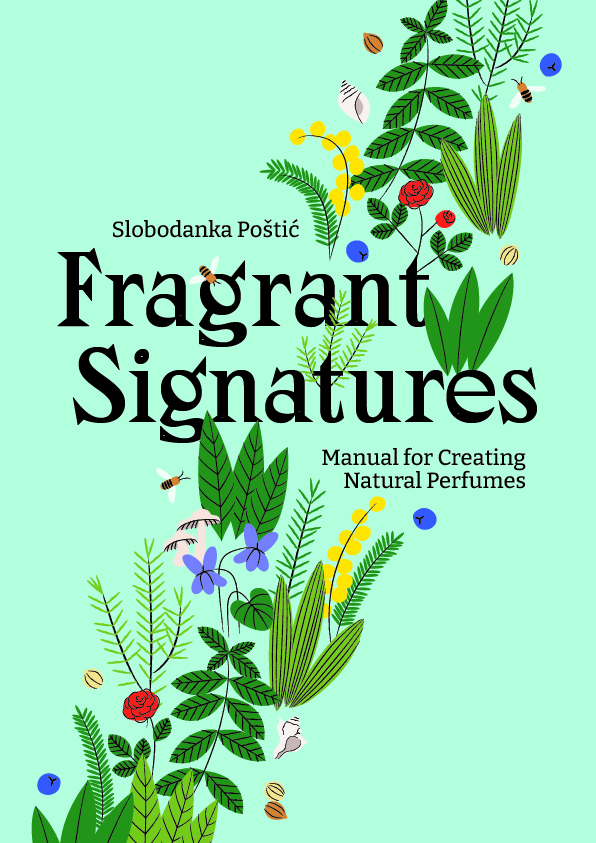
Presenter:
Slobodanka Postic
How to Attend?
Become an Airmid member today if you’d like to have access to this webinar (live or recorded), and many others we are excited to feature this year! Become an Airmid member today
Not a member yet?
You can purchase access to individual webinars by clicking here.
It is well understood that when one can connect and value Nature, including natural scents used in perfumery, one is more likely to protect it, and that overall well-being is important to preserve as impacts of climate change do impact global health. In this webinar, Slobodanka Postic, author of Fragrant Signatures: manual for creating natural perfumes (2022), will teach you what the term natural perfume actually means, she will provide a brief insight into our smell experience, present arguments as to why it would be good to learn how to create natural perfumes, and explore results of her ongoing survey which reflects what students who completed Fragrant Signatures education learned about the impact of creating and wearing self-created perfumes.
To read more about Slobodanka’s recently published manual please click here.
The link for purchasing the manual, click here.
About Slobodanka Postic
Slobodanka is a nature admirer, teacher, aromatherapy and natural perfumery educator, and author of books and manuals in these fields.
Her biggest passion is natural perfumery, which she has been teaching since 2005. As an educator, she enjoys witnessing curiosity, enhthusiasm and creativity of her students, as well the impact that the process of creating and wearing natural perfumes has on their wellbeing.
Committed to the protection of threatened essential and oil-bearing plants herself, she also teaches her students to behave environmentally responsible and sustainable.
She authored the book Fragrant Signatures, Manual for Creating Natural Perfumes, (www.fragrant-signatures.eu) designed for all interested do-it-yourselfers out there.
Slobodanka also manages a resourceful website about aromatherapy, natural perfumery and olfactory experiences (www.aromaterapija.info).
April 26, 2022
Pure Australian Sandalwood oil: cultural, environmental and societal considerations
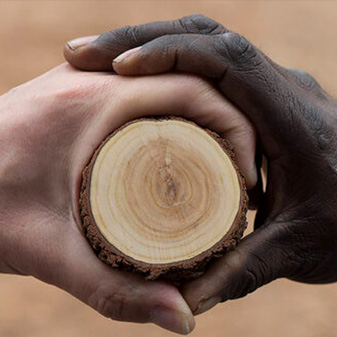
Presenter:
Guy Vincent
How to Attend?
Become an Airmid member today if you’d like to have access to this webinar (live or recorded), and many others we are excited to feature this year! Become an Airmid member today
Not a member yet?
You can purchase access to individual webinars by clicking here.
The production of Santalum spicatum oil into a highly valued perfumery, cosmetics and aromatherapy ingredient is nuanced and complex. Guy Vincent, CEO of Dutjahn Sandalwood Oil will talk about plantation and wild harvested wood supplies, discussing cultural, environmental, societal and quality aspects of a fascinating species that spans an area of around 1.4 million square kilometres (540 000 square miles) more than the combined land masses of France, Italy, Portugal, Great Britain, California and Ecuador.
About Guy Vincent
Guy Vincent, an international perfume expert, became chief executive of Dutjahn Sandalwood Oils in August 2020. Dutjahn Sandalwood Oils supplies to major cosmetics and fragrance companies such as Estee Lauder and Givaudan. Mr Vincent returns to Australia from the USA following a ten-year stint as Aveda’s head perfumer where he formulated a number of popular fragrances using sandalwood oil, and seven years at Aromatherapy Associates in London. Click here for the Dutjahn website.
April 22, 2022
PAMPER: Protect Aromatic plants and Medicinal Plants for Earth Rejuvenation
Airmid Institute is partnering with EarthDay to bring awareness to the challenges medicinal and aromatic plants are facing as a result of climate change and weak supply chains. We will also explore how to support and prepare children as future Earth protectors, and honor Indigenous communities and sacred relationships with plants.
Meet the Speakers
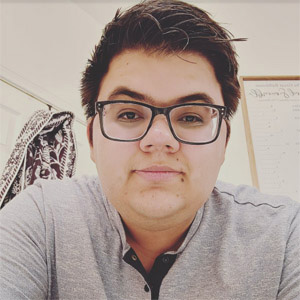
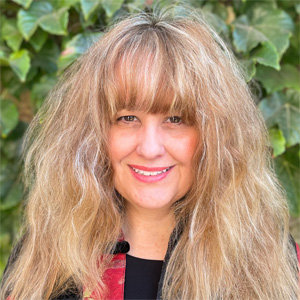
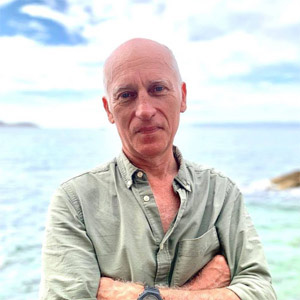
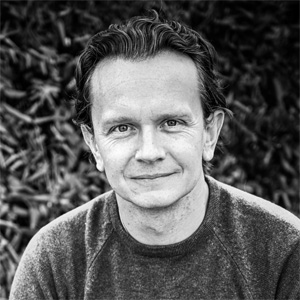
Agenda
- Welcome with Airmid Institute Directors and Global Ambassadors. Outline EarthDay Objectives and Virtual Event
- Opening with Mark Levinson, Language Preservation Specialist at Morongo Cultural Heritage, in honor of the Gabrielino-Tongva Peoples of Los Angeles County
- Introduction to Airmid Institute
- Dr. Kelly Ablard, Airmid Institute: Medicinal and aromatic plants: impacts of climate change and next steps
- Olivier Behra, Net Positive Impact: Aromatic and medicinal plants to involve local communities into sustainable use and biodiversity conservation; the need of a new business paradigm
- Lori Snyder, Metis Herbalist and Airmid Director: Nurturing relationship with plants/ spiritual and sacred uses
- Andy Thornton MBA, Silvan Ingredient Ecosystem – Blockchain, Brands and You: Creating Partnerships For Transforming Supply Chains
- Dr. Jacqui Stringer, UK Airmid Ambassador: Connecting Children to Nature
- Community engagement through images and voices of those sharing about their connection to Nature and solutions to combat humankind’s biggest challenge – climate change
- Recap with Dr. Kelly Ablard
- Closing with Mark Levinson, Airmid Directors and Ambassadors
To learn more about how you can get involved, please contact us at info@airmidinstitute.org.
Thursday, February 24th at 6:00 pm PST
Regenerative Agricultural Practices of Elemi in the Philippines
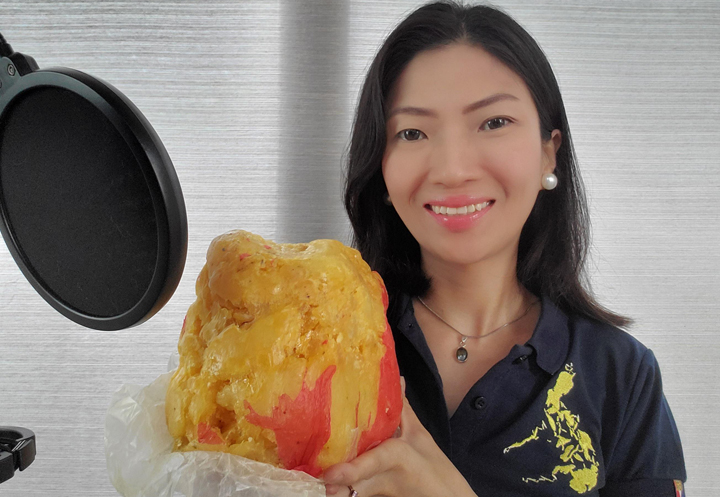
Presenter: Jirbie Go, CA
As of Aug 2019, Elemi (Canarium luzonicum) was classified as Near Threatened on the IUCN Red List. In this webinar, Jirbie will introduce you to the different kinds of Elemi available in the Philippines and their properties, the different uses of Elemi resin, and the country’s current sustainable farming programs to preserve the Pili Tree. She will also introduce you to C. ovatum, a more sustainable alternative to C. luzonicum, and the regenerative agricultural practices in producing the Elemi oil.
How to Attend?
Become an Airmid member today if you’d like to have access to this webinar (live or recorded), and many others we are excited to feature this year! Become an Airmid member today
Not a member yet? You can purchase access to individual webinars by clicking here.
About Jirbie Go, CA
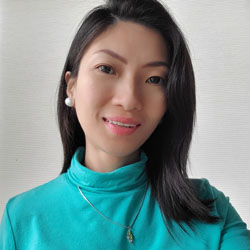 Jirbie is the current AIA Rep for the Philippines and the Philippine Ambassador for Airmid Institute. As one of the pioneering Certified aromatherapists in the country, Jirbie has been invited to participate in various public speaking engagements about aromatherapy since 2018. She continues to empower and inspire her aromatherapy students to pursue formal studies in aromatherapy as she believes that proper education can help elevate the current aromatherapy industry in the Philippines. Through her blog, her Youtube channel, her podcast, and through personal mentoring, she uses her multimedia platform to promote safe and responsible use of essential oils. Jirbie remains to be a conduit between small scale producers of essential oils and end users in the hopes of uplifting the Philippine aromatherapy industry as she supports these microproducers in their sustainable and regenerative efforts.
Jirbie is the current AIA Rep for the Philippines and the Philippine Ambassador for Airmid Institute. As one of the pioneering Certified aromatherapists in the country, Jirbie has been invited to participate in various public speaking engagements about aromatherapy since 2018. She continues to empower and inspire her aromatherapy students to pursue formal studies in aromatherapy as she believes that proper education can help elevate the current aromatherapy industry in the Philippines. Through her blog, her Youtube channel, her podcast, and through personal mentoring, she uses her multimedia platform to promote safe and responsible use of essential oils. Jirbie remains to be a conduit between small scale producers of essential oils and end users in the hopes of uplifting the Philippine aromatherapy industry as she supports these microproducers in their sustainable and regenerative efforts.
Tuesday, December 7th, 2021
Energetic Herbalism: A Tool for Stewardship
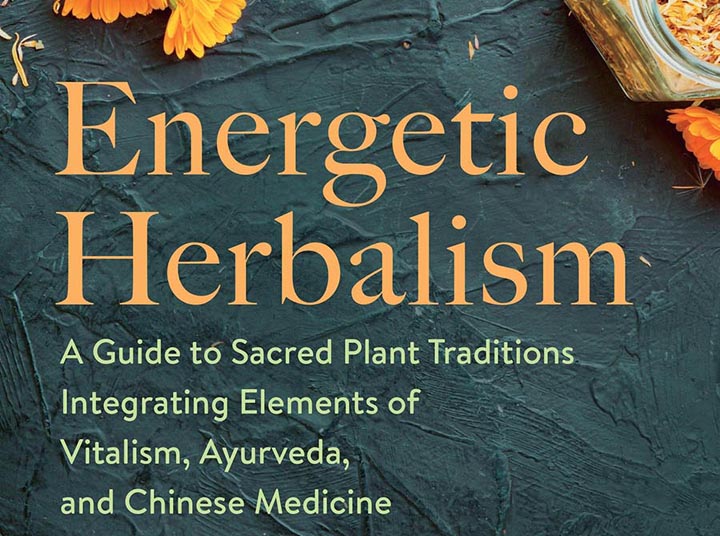
Presenter: Kat Maier, RH (AHG), PA
From her recently released book Energetic Herbalism, Kat states “The word energetic may conjure images of New Age crystals, and the term is sometimes misapplied to any and all new healing modalities. In truth, though, energetic herbalism is as old as the Earth herself. This mode of healing is based on the truth that the vital force of nature and the vital force of an individual human are one and the same. Indigenous cultures the world over call this force spirit in their native language. Ancient Greeks called this force vitality, the Chinese call it Qi (chi), the Iroquois nation calls it Orenda, Ayurveda calls it prana, West Africans call it Ashe”.
When we work with the elements of nature we understand that we are nature and to read our patterns and those of the plants become the most elegant and sustainable form of practice. In this hour we will give an introduction to the various systems of energetic herbalism and look at the concept of medicine of place.”Plants are the ultimate alchemists, and the land a plant calls home is part of its medicine story. This is where apothecary practices begin. When we harvest and work with a medicine, we are gathering so much more than simply the leaf, flower, or root”. This then will lead us to discuss where we as practitioners are on the front line of preserving not only our medicines but the habitats/homes in which they dwell.
To pre-order Energetic Herbalism through November 26, 2021, please visit KatMaierHerbalism.com (highly recommended!)
Members:
If you haven’t become a member of Airmid Institute, join today and receive indefinite access to this webinar, and many more!
Non-Members:
Click here to purchase individual webinars
Sunday, October 17th, 2021
Say It with Flowers!
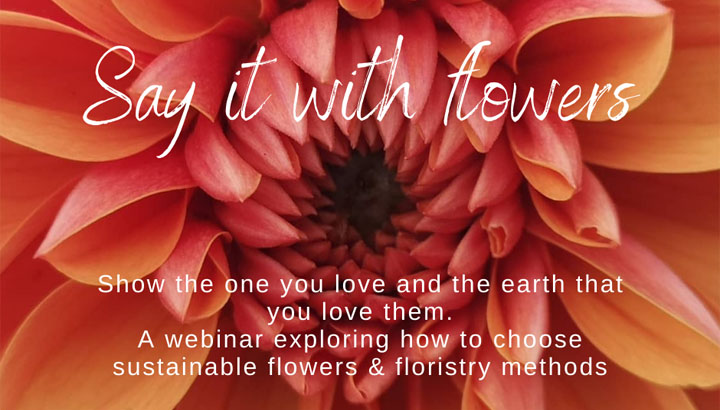
Presenter: Anita James
We show our love with flowers. They are gifts to celebrate birthdays, anniversaries, and achievements.
But how sustainable are the flowers you are giving as a gift? Are you showing your love for the planet in your choice?
In this webinar we will explore the plants used for producing cut flowers, growing methods, transportation, and packaging. We will also look at how to make more sustainable choices when gifting flowers.
Members:
If you haven’t become a member of Airmid Institute, join today and receive indefinite access to this webinar, and many more!
Non-Members:
Click here to purchase individual webinars
Wednesday, August 18th, 2021
Buying oils and herbs as if the future matters: threats on the horizon for aromatic plants
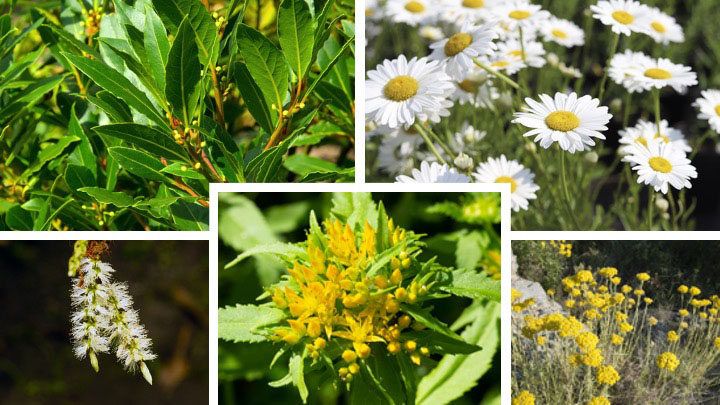
Presenter: Dr. Kelly Ablard
The webinar will explore the revised Airmid Institute Biannual List of Threatened, Near Threatened, and CITES-Protected Plants, Mammals, Fungi, and Seaweed Species Used in Aromatherapy, Perfumery, and Aromatic Herbalism released on July 1, 2021, highlight key plant species of Least Concern (IUCN), and review vital considerations for ethical sourcing. Attendees will also receive a list of those key plant species of Least Concern.
Members:
If you haven’t become a member of Airmid Institute, join today and receive indefinite access to this webinar, and many more!
Non-Members:
Click here to purchase individual webinars
Monday, July 19, 2021
Discovering our native, wild and medicinal plants: why our living ecology is so paramount at this time
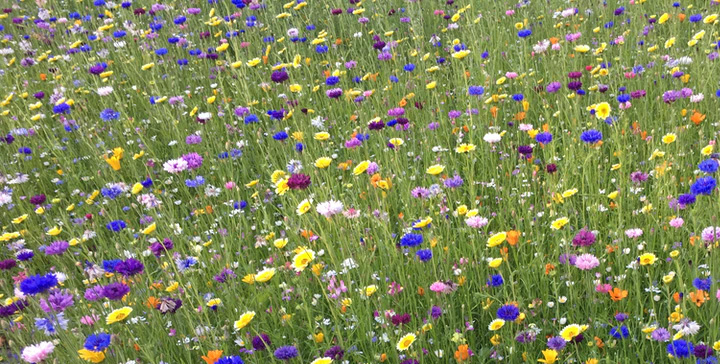
Presenter: Lori Snyder, Indigenous Herbalist and Educator
Discover our wild, native and medicinal plants that are growing outside our door. The wild weeds, the ones our ancestors ate who offer lessons on how to be a good guest. Who are our native plants and why they are so important for our local ecology and the gifts and teachings they bring. And who are the medicines we can grow in our gardens to make teas, salves, tinctures, incense and who help us build good relationships with our living world. Practices of reciprocity where we take care of each other, honourable harvest, respect for our Mother, remembering our responsibility, and giving thanks with reverence.
Members:
If you haven’t become a member of Airmid Institute, join today and receive indefinite access to this webinar, and many more!
Non-Members:
Click here to purchase individual webinars
Saturday, April 24th, 2021
The Struggles of Indie Perfumers

Presenters: Heather D’Angelo, Mauricio Garcia, Molly Brennan, and Sydney Buffman
This webinar will explore the struggles of being indie perfumers trying to run their businesses as sustainably as possible, and will highlight unique solutions to overcome common challenges.
The Coalition of Sustainable Perfumery is a network of environmentally and socially conscious creators who through resource sharing, inter-industry relationship building, informed discussion, and collaborative accountability seek to create and distribute scent products that are as sustainable for people and the planet as possible.
Members:
If you haven’t become a member of Airmid Institute, join today and receive indefinite access to this webinar, and many more!
Non-Members:
Click here to purchase individual webinars
Wednesday, February 24th, 2021
Sustaining Frankincense in the 21st Century
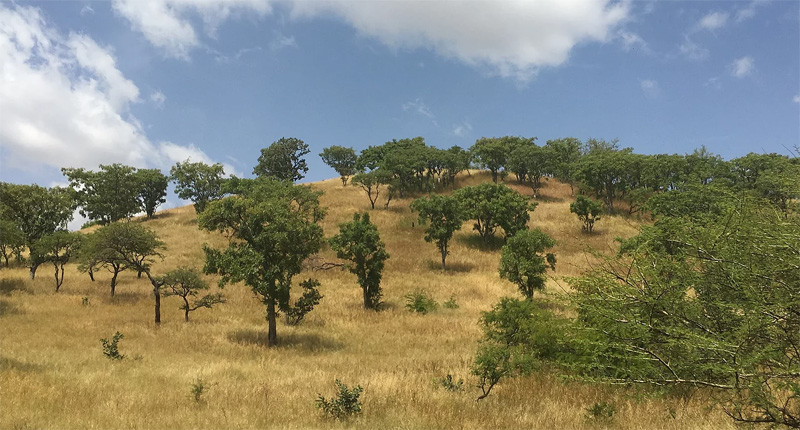
Presenter: Stephen Johnson
The webinar will focus on the conservation statuses, sustainability practices and challenges commonly traded frankincense (Boswellia spp.) species and community harvesters face. We will also touch on some tips for ethical sourcing of high quality frankincense essential oil.
Stephen Johnson has been working on the sustainability of wild-harvested products since 2016. He has conducted field research and analyses in West Africa (Burkina Faso, Ghana), East Africa (Ethiopia, Somaliland, Puntland), and the Arabian Peninsula (Oman), and has published almost a dozen peer-reviewed papers, book chapters, and reports on non-timber forest products, especially frankincense. As the founder of FairSource Botanicals, Stephen focuses on building socially, ecologically, and economically regenerative supply chains, as well as celebrating and promoting the brilliant rainbow of diversity in the scent, chemistry, and ecology of different frankincense and myrrh species. He also runs FrankincenseHoney.com, which uses honey production to provide additional value for the trees and to support propagation and regeneration of frankincense species.
Website: www.fairsourcebotanicals.com
Members:
If you haven’t become a member of Airmid Institute, join today and receive indefinite access to this webinar, and many more!
Non-Members:
Click here to purchase individual webinars


